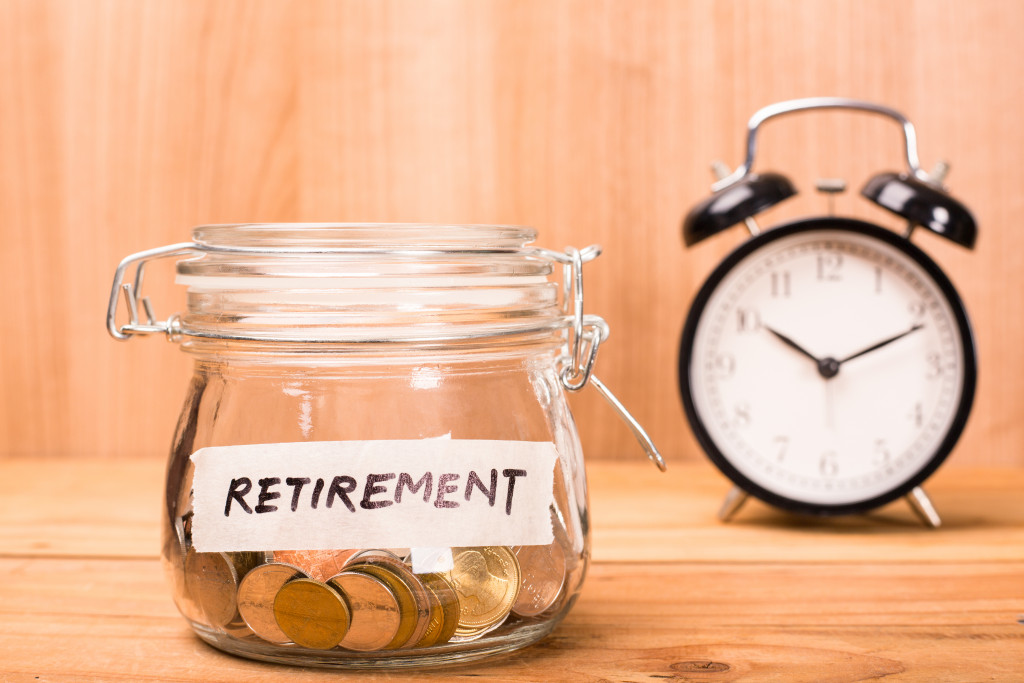One of the perils of our youth is thinking that we will never get old. When we are in elementary school, each day is an eternity, and hours seem like years. As we get older, time moves faster, and before we know it, we find ourselves overwhelmed with responsibility.
Even so, it doesn’t have to be a negative thing. Aging and retiring can be something we look forward to, especially if we have enough money.
To do so, we should stay healthy, save, invest in a property, and get as much knowledge as we can.
The Benefits of Staying Healthy
The biggest expense most people will have after retirement is personal health. Studies show that the average American couple will spend around 400,000 dollars on healthcare alone. This number is even bigger if you have kids, preexisting medical conditions, or age-related degenerative illnesses like Parkinson’s and Dementia.
As such, health is not only an issue of convenience or quality of life. It is also a matter of money. Of course, accidents can happen, and healthy individuals can suddenly develop a crippling disease. Still, in most cases, being healthy is a matter of prevention, education, and personal choices. The younger you start, the better.
Simple actions you can take to stay healthy are:
- Regular visits to the doctor. Aside from getting a physical once a year, this also includes dental care, preventive testing, and blood work.
- Taking a proactive approach to nutrition and fitness. Look at what you are eating and practice reading food labels at convenience stores and supermarkets. Find alternatives to sweets and high-calorie foods—research different exercises based on your age, gender, and current physical condition.
- Find time to relax. We are all busy, and we all have responsibilities. Yet, we can still find to unwind from the stresses of life and give our brains a chance to recover.
- Practice mediation and self-healing. There are many benefits to meditation and a multitude of ways to do it.
Health is wealth. It is especially true as you age, your bones lose density, and your immune system weakens. Your wallet will thank you for it.

Saving for a Rainy Day
Life is full of unexpected events. There might be a natural disaster, a death in the family, or a job loss. These things will happen to every one of us, no matter our age. However, there is a big difference between losing your job at 25 than at 65. At 25, you can find another job, learn a new skill, start a business, or get a long-term loan. At 65, your options are much more limited.
So start saving as early as you can, as soon as you get your first paycheck. If you have kids open a savings account for them and teach them the value of money. And make a detailed plan. Don’t just buy a piggy bank and put coins in it every once in a while. Write down realistic savings goals, think about what you will do to achieve this, and be consistent. You will be surprised how much you have by the time you can no longer work.
Investing in Real Estate
The average mortgage term in the United States is 30 years. Unless you are a celebrity, an athlete, or you inherit a lot of money from a relative, you too will have to pay monthly installments for the better part of your life.
If you buy a house at 20, you will be done by 50 years old. The younger you are, the higher the possibility of a bank lending you money.
But how can you buy a house at 20 years old? Where can you get the money for a down payment? The key is not the age itself but rather you taking the time to think about buying.
Even if you don’t have money now, start exploring and look at different options. Maybe you can do a joint-investment with your parents or a friend. You could also look into getting real estate shares instead of an entire property. Whatever you decide to do, don’t stand idle and wait. Start collecting information and learn.
The Power of Knowledge
Knowledge is the biggest tool you can have in your arsenal. There is nothing greater than the power of information. In terms of money, this means asking your employer how your 401k pension account works, how often and how big the contributions are, and what you can expect. It also means looking into tax breaks, alternative investment options, and financial instruments.
If you make the right decisions, retirement can be the happiest part of your life. If you haven’t thought about it yet, then do it. There is no time to waste. By investing in your health, saving, buying a property, and getting the right information, the latter years of your life will be your best.

